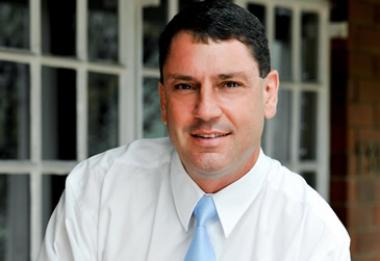The Property Investment Call — Local or International
 Just Property Group Chief Executive Officer, John Roberts
Just Property Group Chief Executive Officer, John Roberts
Property remains the key pillar in the investor's armament, offering long-term growth coupled with rental income in the medium-term.
Just Property Group CEO, John Roberts says the question on whether that investment should be in South African property or globally is one of personal choice.
A recent report into foreign buyers of London property reflected wealthy South Africans were now the 11th most active nationality in the property segment above £1 million, outperforming buyers from far wealthier countries including Germany, Singapore, Saudi Arabia, Switzerland and Canada over the past three years.
"What can be extrapolated is that wealthy South Africans are highly sensible in their investment decisions and are seeking out London properties as safe havens against the weak domestic economic outlook and continued uncertainty around the timing of the global economic recovery," he said.
Mr Roberts said these people may not be looking to emigrate, but are taking advantage of the relaxed foreign exchange regulations to migrate a portion of their wealth to a stable economy with a strong currency. Prime central London house prices have grown 49% since March 2009 and are now 14% higher than the March 2008 market peak.
In November the Spanish trade secretary Jaime García-Legas announced the country would offer residency permits to foreigners buying houses priced at more than €160000 as part of its efforts to revive a collapsed real estate market and divest itself of the estimated 700000 unsold homes on the market.
While the move was chiefly aimed at Chinese and Russian investors who faced difficulties purchasing Spanish properties because they were not European Union residents, the same principle would apply to South Africans. It also followed on the heels of similar moves by Ireland and Portugal to spur their housing markets by easing residency requirements.
Malta has long been upheld as an international property investment destination. One of Europe's smallest and most densely-populated countries, it also offers idyllic holiday and investment opportunities.
It is not a tax haven in the sense of being an offshore investment destination or enabling clients to hide money behind nomination companies, but an onshore European investment option that offers significantly favourably opportunities for high net-worth individuals.
Before the global economic crisis, the Maltese property market experienced a progressive price growth. However, in recent years the various markets have suffered differently with the low to middle-end market experiencing a drop in prices while the top-end properties have remained relatively stable.
Beneficial to potential investors is that Malta waives property taxes on the resale of properties after three years. Purchasing property is subject to a 5% stamp duty and the country has identified significant niche market developments geared towards foreign direct investment.
Typically developed around historic sites, the government allows foreigners to own more than one apartment within these complexes and specifically-designated areas. Outside these zones, foreigners may only purchase one property.
"However, that does not mean South Africans should be ignoring the property investment opportunities on our own doorstep - particularly when international buyers are tripping over themselves to grab them," Mr Roberts said.
Local and international high net-worth buyers are reportedly cherry-picking the best value on offer in the luxury housing sector over R10 million. Earlier this year a trophy home in Fresnaye on the Atlantic seaboard changed hands for a record R42 million, while another Clifton property was sold for R37,5 million within a month of its listing.
The purchaser was an Australian national relocating to South Africa and the home apparently ticked all the boxes demanded by luxury buyers - architectural excellence, state-of-the-art finishes and full automation.
In November a new estate development on the banks of the Jozini Dam in northern Zululand achieved R14 million worth of sales on launch, indicating that real estate is still viewed as a sound investment vehicle. They are statistics borne out by sales north of Durban from Durban North to Umhlanga and Ballito.
Durban North properties will change hands up to R15 million and boast outstanding entertainment areas and oceanic and/or city views. Research by property statistics and information provider Lightstone shows these homes are typically purchased by younger buyers with the capital to renovate, but also with the knowledge that this location has long-term value and that the investment will be exponentially rewarded.
Mid-level Ballito homes attract price tags around R3,5 million and top-end homes between R6 million and R14 million. By securing price tags in that range, the area reflects its value as an investment destination.
Currently, South African property prices relative to income have returned to 2004 levels and showed year-on-year growth of 5% for the 12-month period to September 2012. Prices were rising roughly in line with inflation and, coupled with the improved affordability on the back of salary increases and higher percentage of bond applications being granted, reflected the market was recovering.
The balance between buyers and sellers has improved, but there are still some unrealistic expectations among sellers on the price the market will accept, reflected in the average selling time touching four months. From the investors' perspective, there are still opportunities to maximise on their property portfolio before the tide completely turns towards a sellers' market.













